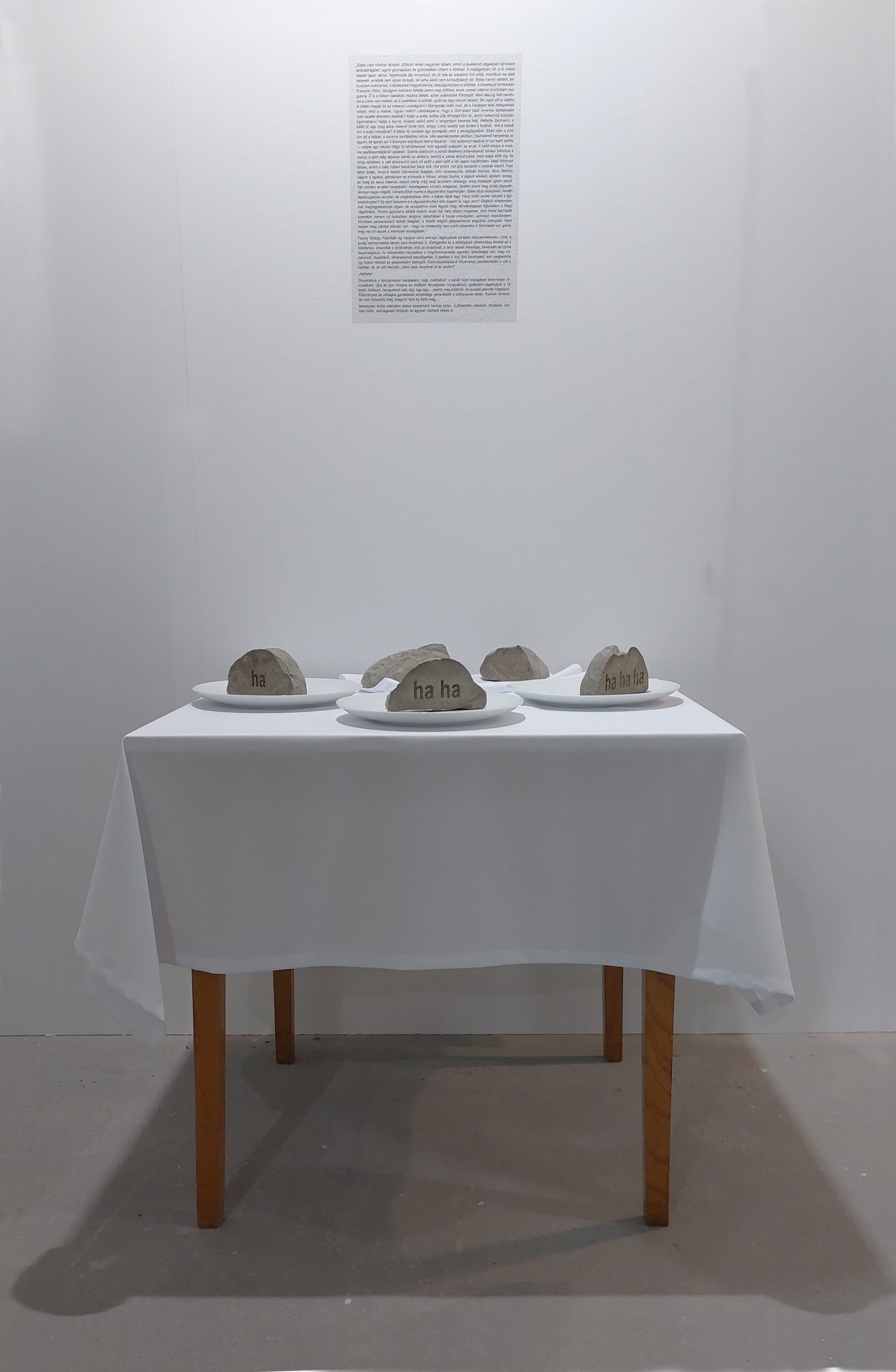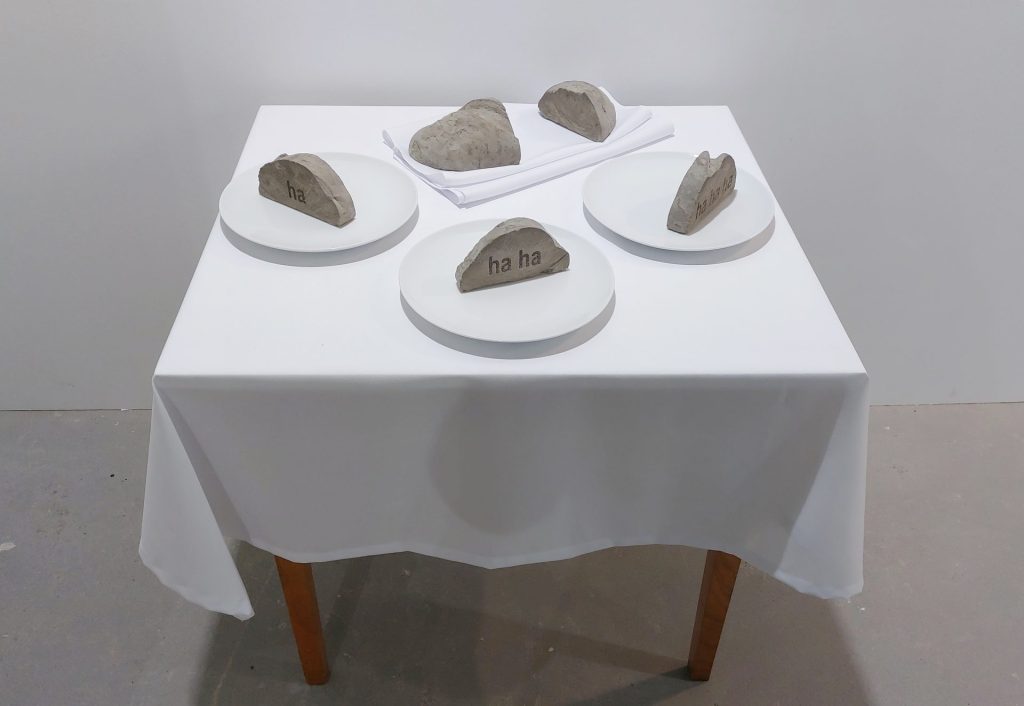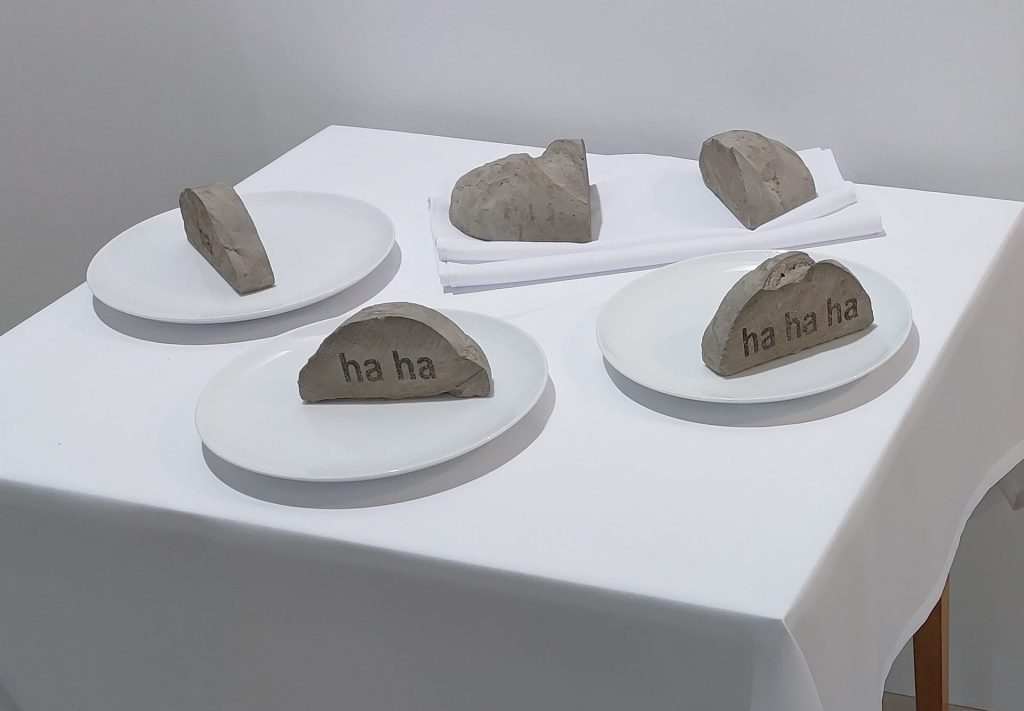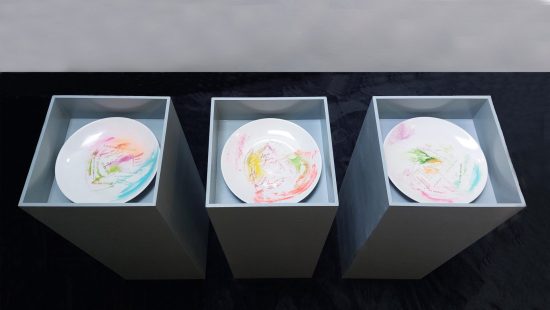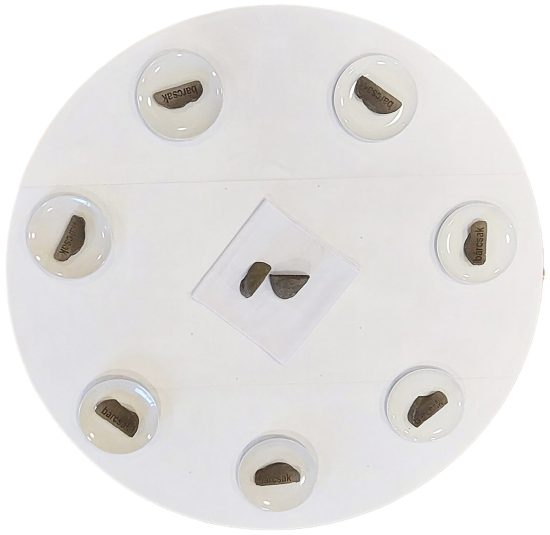By reading again and again this, the first unimportant phoneme, we break up the twelve letters. A connecting word, a sound-imitating word, one, one by one… appears before us.
From the lines of György Faludy’s biographical novel Pokolbéli víg napjaim, reminiscence, vision, mud mixed with gulag bodily fluids can be read. The alternation of revitalizing and defatigating gives a boost to survival, dynamism to the story, and strength to the reader. The sharpness of the descriptive parts is mixed with the bitterness of irony. The only way to survive in the inhumane situation was to talk about literature, philosophy, and history. The spirit hovered over the body, which kept its operating temperature and clicked like a machine. Their calorie counting was a constant confrontation with death, but it was there in them: “You don’t live by bread alone!”
“Hahaha”
We could hear it as the mine master’s laughter, or we could read it as the bittersweet rhythm of the knocks between the cells. By reading again and again this, the first unimportant phoneme, we break up the twelve letters. A connecting word, a sound-imitating word, one, one by one… appears before us. The original report is added.
The possibility of antecedents and afterthoughts is generated through conjunctions. We don’t get to know a specific story, we write and live it ourselves.
My loaves cast in concrete are definitely marked as bread. Slices, which are separate, textual surfaces and also viewable images.
Engraved concretebread, tablacloth, table.
